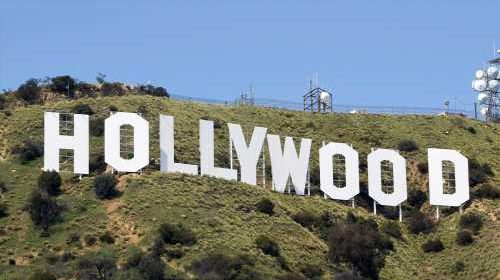WGA West’s Middle Eastern Writers Committee Urges Hollywood To Be More Inclusive, Less Stereotypical

Members of the WGA West’s Middle Eastern Writers Committee are urging the film and television industry to be more inclusive and less stereotypical in its storytelling.
“Reach out to us. Get to know our work. And most of all, take more chances on us to both tell our own stories and contribute to the ones being crafted in writers rooms all over town,” they wrote Monday in an open letter to the industry. But they noted: “How can we get in the rooms to tell other stories if we’re not even being hired to tell our own?”
The group said they formed the committee “primarily on the basis of one disappointing fact. As reported in the WGAW Inclusion Report of 2020, Middle Eastern writers are dead last, making up only 0.3% of employed writers. You read that right. 0.3%. That’s pretty close to 0%. Because of this, we find ourselves at a cultural inflection point, and we’re asking for your allyship to improve this number. Identifying the problem is the first step – taking action is what should follow.”
“We can be successful and entertaining too,” they said. “Just ask Hulu and A24 who produce Ramy, 3 Arts Entertainment and TBS who produce Chad, or Berlanti, Warner Bros and The CW who produce DC’s Legends of Tomorrow, which features two MENA (Middle Eastern and North African) leads.
Watch on Deadline
“This current trend tells us that nuanced stories with intimate knowledge about real, Middle Eastern people and their families are wanted in the mainstream. Unfortunately, these stories are typically few and far between. We’re often branded as one-dimensional, naïve foreigners with funny accents, stereotypical, shady businesspeople, and too often, our identities seem to be intrinsically tied to the War on Terror and being America’s number one enemy.
“But we hope that through diversifying our storytelling and creating a larger community within the industry, we can find our common ground and together cultivate more positive and nuanced representations of MENA cultures on TV and the big screen.
“We all want to see change. But we know we can’t do it alone. So, let’s keep this conversation going. We look forward to partnering with you, ensuring that our voices are heard and that we’re represented across the industry. Feel free to reach our Committee directly through our WGAW Inclusion & Equity staff liaison.”
Click here to access a database of self-identified Middle Eastern writers in the WGA.
The open letter was signed, “in solidarity,” by:
Abdi Nazemian
Abdullah Saeed
Allyson Philobos
Annie Wood
Anya Meksin
Aram Spencer Porter
Arun K. Vir
Ben Deeb
Bisanne Masoud
Cameron Ali Fay
Cameron Porsandeh
Cherien Dabis
Christine Roum
Dana Farahani
Daria Polatin
Debbie Jhoon
Denise Harkavy
Derek Asaff
Dylan Tanous
Emily Eslami
Eric Nazarian
Evan Mirzai
Hadi Nicholas Deeb
Iden Baghdadchi
John Aboud
John Hibey
Joie Botkin
Kamon Naddaf
Kinan Copen
Laura Shamas
Lewis Sarmed Alsamari
Mano Agapion
Max Botkin
Maytha Alhassen
Mike Dow
Mitra Jouhari
Mona Mira
Moujan Zolfaghari
Nastaran Dibai
Paiman Kalayeh
Patrick Moss
Ramin Bahrani
Sabine El Gemayel
Sahar Jahani
Sam Esmail
Samuel V. Franco
Sara Saedi
Shea Mirzai
Siavash Farahani
Stephanie K. Smith
Tamara Farsadi
Taylor Hamra
Ursula Taherian
Zach Koepp
Read More About:
Source: Read Full Article
